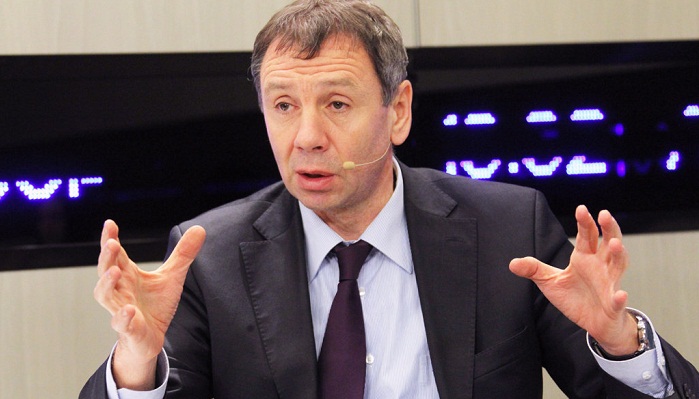OSCE MG must exert pressure on Armenia - political analyst

“We should remember that a month ago the escalation was at its climax on the contact line of troops. Armenia announced that it had denounced the talks. Moreover, Yerevan put forward preconditions for resuming the talks, such as that Azerbaijan had to abide by the ceasefire agreement and other conditions. None of Armenia’s preconditions were fulfilled but still they were forced to sit at the negotiations table,” he said.
According to the political analyst, if there are no considerable advancements in the negotiations proves, if no real steps are taken, the threat of war will arise again.
He noted that the main goal of Armenia is to maintain the status quo in the conflict, which lowers the productivity of the talks over a peace resolution.
“The co-chair countries always try to have Azerbaijan in the negotiation process. So Azerbaijan does not fight when sitting at the negotiation table. As for the probability of the OSCE Minsk Group co-chair countries helping the parties reach some compromise, I can say that the initial compromise in the negotiation process could be Armenia’s return of a few of the occupied districts to Azerbaijan in exchange for the lifting of the transport blockade. I think that the co-chair countries should put pressure on Armenia to take this step. Armenia was thinking that it achieved a success by maintaining the status-quo over 20 years. However, the April clashes proved just the opposite. Thus, I consider that the current military situation allows Armenia to give up its longstanding position. It will open up opportunities for a compromise,” Yepifanstev added.
Sergey Markov, political scientist, member of the Public Chamber of Russia and director of the Institute of Political Studies said that though the Vienna meeting of the Azerbaijani and Armenian presidents with the participation of the Minsk Group co-chairs seems to be unproductive, it is of great importance.
He noted that no agreement was reached during the meeting, except the consent on the investigation of incidents on the contact line.
“The meeting was necessary in reaching the Kazan formula that means Armenia gives the occupied districts around Nagorno-Karabakh to Azerbaijan, and in return, Azerbaijan removes the economic blockade of Armenia,” Markov said, underlining the importance of holding such meetings regularly.
Markov said the Vienna meeting can be regarded as the restoration of the negotiation process following the “four-day war”, expressing hope for progress in the settlement process by the end of this year.
He went on to say that the conflict parties have already agreed the Kazan formula on 95 percent.
“The Armenian side agreed to return six districts to Azerbaijan at the initial stage. But Azerbaijan has demanded the return of 6.5 districts (with the condition to keep the Lachin corridor to Armenia),” Markov said. “Another discrepancy is that Azerbaijan wants the UN Security Council resolutions, which confirms that Nagorno-Karabakh belongs to Azerbaijan, to be mentioned in a final document to be adopted on the conflict’s settlement. Armenia is against it, because these resolutions are not in its interests.”
What’s important is that the issue of participation of Azerbaijani IDPs in a referendum to be held in Nagorno-Karabakh, the political scientist said, adding that Azerbaijan is trying to bring this issue into the final document.
The Nagorno-Karabakh conflict entered its modern phase when the Armenian SRR made territorial claims against the Azerbaijani SSR in 1988.
A fierce war broke out between Azerbaijan and Armenia over the Nagorno-Karabakh region of Azerbaijan. As a result of the war, Armenian armed forces occupied some 20 percent of Azerbaijani territory which includes Nagorno-Karabakh and seven adjacent districts (Lachin, Kalbajar, Aghdam, Fuzuli, Jabrayil, Gubadli and Zangilan), and over a million Azerbaijanis became refugees and internally displaced people.
The military operations finally came to an end when Azerbaijan and Armenia signed a ceasefire agreement in Bishkek in 1994.
Dealing with the settlement of the Nagorno-Karabakh conflict is the OSCE Minsk Group, which was created after the meeting of the OSCE Ministerial Council in Helsinki on 24 March 1992. The Group’s members include Azerbaijan, Armenia, Russia, the United States, France, Italy, Germany, Turkey, Belarus, Finland and Sweden.
Besides, the OSCE Minsk Group has a co-chairmanship institution, comprised of Russian, US and French co-chairs, which began operating in 1996.
Resolutions 822, 853, 874 and 884 of the UN Security Council, which were passed in short intervals in 1993, and other resolutions adopted by the UN General Assembly, PACE, OSCE, OIC, and other organizations require Armenia to unconditionally withdraw its troops from Nagorno-Karabakh.















































